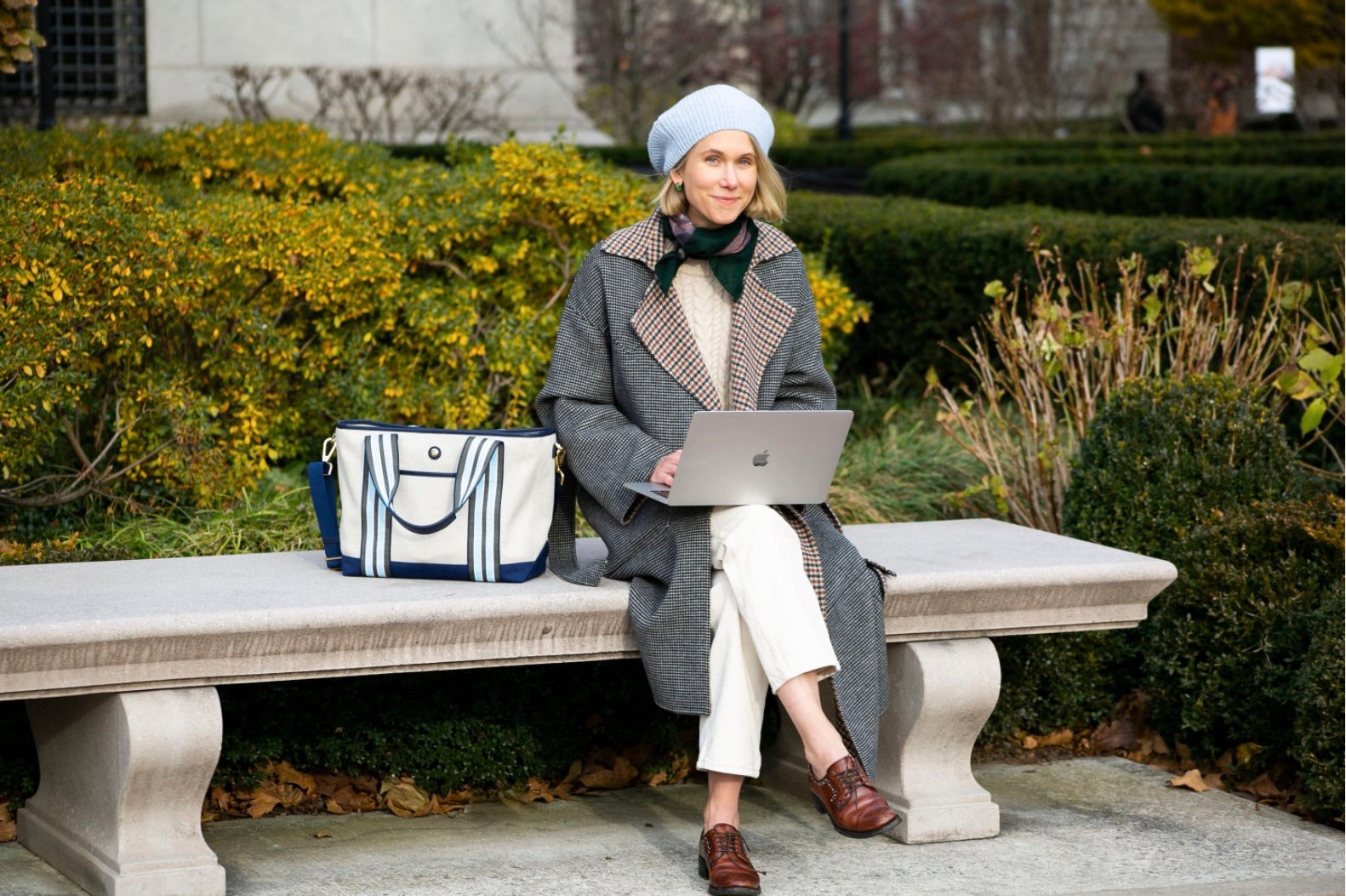You've had such an interesting career trajectory: I believe you started as a ballerina, then worked at Vogue and Moda Operandi, founded sustainable luggage brand Paravel, and are now a student at Columbia Climate School. We're exhausted just thinking about it! How did your first career as a dancer inform your approach to the subsequent chapters of your career?
My first career and first love was ballet and it had a huge impact. Maybe the idea that ballet dancers– even at the highest levels–start each day with a ballet "class," creates this sense that you’re always a student of your art form, that there’s always more to learn. I’d like to think that I brought this respect for and love of “the process” to everything I’ve worked on since then. Though my Paravel co-founder would point out there have been plenty of times when I’ve desperately wanted to bypass some “process” moments in our startup journey.
Your passion for sustainability is crystal clear (and quite infectious). For those of us who aren't as well-informed as you are, what are some simple practices we can put into effect in our daily lives to help mitigate our impact on the environment?
It's not really about a few quick fixes and your work here is done. The most meaningful answers are long-term commitments and some unsexy changes. Things like looking into electrification options, renewable energy sources, your appliances efficiency, or the insulation in your house. Not everyone is an equal contributor to this problem, so I think many of us have to look beyond swapping out plastic straws. I often direct people to Project Drawdown to learn more about climate solutions. And then, beyond making changes at home, can you be an advocate in your workplace? Can you get involved in local community climate organizations? Do you talk about climate with your children? And perhaps most importantly, do you VOTE this topic?
Paravel has set a new standard for luxurious yet affordable and sustainable, carbon neutral luggage. What are the various elements that make the brand sustainable? Is it in the materials, sourcing, production, or (I would imagine) all of the above?
Paravel takes an all of the above approach to “sustainability”–even though I try to avoid that word because it’s murky. We start by measuring and accounting for our carbon footprint across everything from sourcing, design, production, shipping, and delivery. Then we actively work to reduce it. This is both on the design side, which means 100% of our products use upcycled materials as a starting point, and on the operation side, which means analyzing how the product is shipped and delivered, for example. We offset the remaining footprint with partners like Eden Reforestation Projects, with whom we’ve planted over 400,000 trees in forest restoration projects. We see all of this as our responsibility–not our customer’s. The truth is, we aren’t going to shop our way out of this crisis but we can build a community that inspires and educates people on the topic and offers lower-footprint choices for those who want to make them.
We LOVE your conversations with yourself on Instagram. You manage to make them both entertaining and informative- not an easy feat. How did those come about?
Thank you! It started as an independent study at Columbia Climate School–thinking about how we can effectively communicate about climate on social media. After a few false starts and deleted posts, I kept going back to the question of, how do we make something as serious and overwhelming as climate science accessible and entertaining? Being a month away from getting this degree in climate, I can tell you the more I learn, the more overwhelming it gets, so I’m trying to keep it fun for my own sake too!


